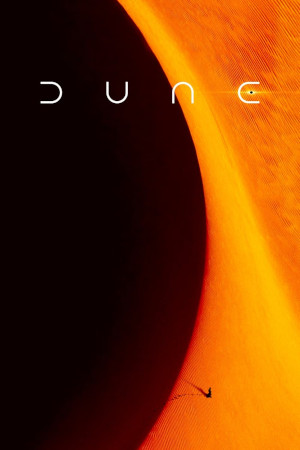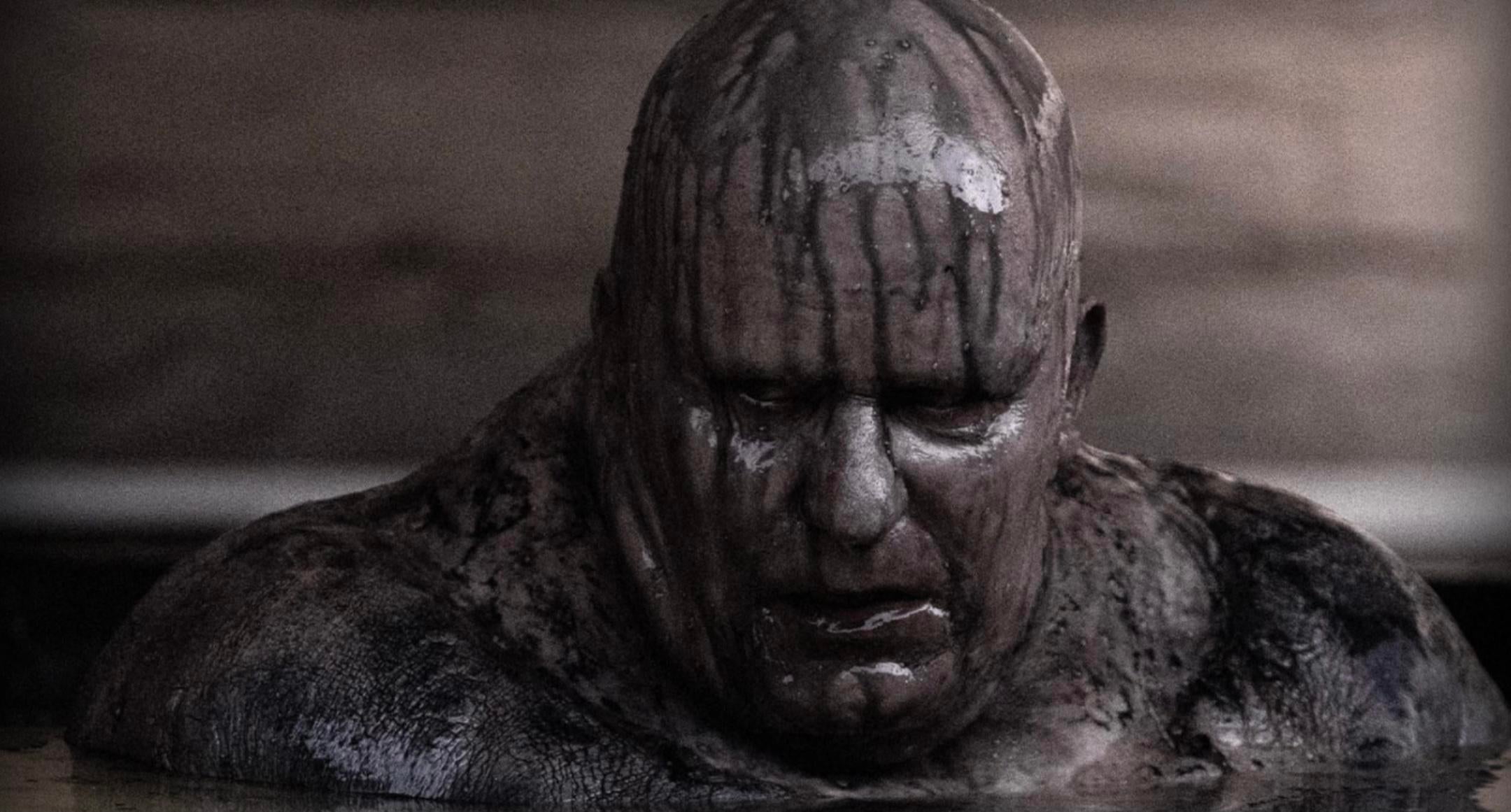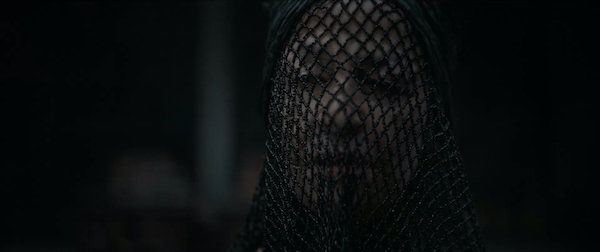
Dune(2021) movie poster. Picture from TheMovieDB
I will preface this with a brief explanation of what inspired me to write this blog post. My exposure to the Dune franchise has been multifaceted, if sporadic: A 90’s RTS computer game with janky controls that mostly revolved around navigating your harvesters away from hungry sandworms, a 1984 art film featuring Sting in speedos(never again), and, most importantly for this review, a social media post written by a friend of mine about the coming film, which I will come back to later. The attentive reader will notice that I did not mention the novel itself, and that is for the simple reason that I have yet to read it, so you will be spared for any bitter purist comments about how Hollywood phonies have unforgivably violated some important, core part of the original novel. Rather, as the headline implies, this will be more of a meta commentary on the overarching themes of the Dune universe and how they are depicted in the movie and how the compare to other popular sci-fi franchises.
Returning to my friend’s SoMe post, he described how Dune differs significantly from other sci-fi franchises in its distinctly pre-modern outlook. ‘Where other popular franchises such as Star Trek, Star Wars and even Game of Thrones (the franchise he juxtaposed Dune to in his post) are constructed around an outlook that is essentially rooted in Western modernity: Rationality, bodily (as opposed to spiritually) focused, pluralist and atheist, with freedom as its own highest ideal. The basic thematic conflict of good vs. evil are essentially in both franchises the battle of rationality (tampered by human morality) and an understanding of freedom rooted in the classically liberal political tradition vs. excessive emotion, religiosity and authoritarianism. Dune on the other hand expresses an outlook that is a lot more gothic, conservative and spiritual. Human civilization is highly technologically advanced, but in lieu of a galaxy teeming with sentient life organized in a democratic republic of free worlds and peoples, humanity in Dune is alone, organized in a feudal empire permeated by religion and mysticism and interstellar travel is made possible not by any amazing technological feat of human ingenuity, but what basically amounts to a hallucinogenic drug, the spice Melange, consumed by human mutants.
Experiencing the visuals of Dune really made me heed my friend’s words. The depiction of architecture and technology such as spaceships is brutalist and monolithic bearing little ornamentation standing in stark contrast to the visually striking outfits of the human characters, as if to impart importance to the human over the technological element. Likewise, the representatives of the House Atreides, who seem to live in harmony with the untamed natural environment of their home world are depicted as noble and statuesque whereas the antagonists of the House Harkonnen, who are shown to have much more affinity with technology, are depicted as barely human, hairless, clone-like brutes.

The obese and grotesque Vladimir Harkonnen played by Stellan Skarsgård. Picture Credit: Warner Brothers
Religion is another central theme of the Dune franchise, and in true Dune fashion it is religion not of the benign ‘I am kind of spiritual’ kind but of the dark medieval despair kind. For the sake of spoilers, I will not go too much into how religion ties into the plot of the film, but it is remarkable how director Dennis Villeneuve has managed to depict a universe, where humanity is held firmly in the clutches of medieval-style religiosity and superstition. Especially the segment on the training world of the sadukars with soldiers training in pouring rain to the sound of the eerie chanting of priests sent shivers down my spine.
Another interesting comparison to make is the depiction of magic and magicians. If one compares the Dune and Star Wars franchises, the Bene Gesserit order and the Order of the Jedi occupy somewhat similar functions in their respective universes as advisors for the secular powers. However, where the Jedi are (if you exclude the expanded universe) portrayed as a benign if distant order of warrior monks being on the good side of a light/dark dichotomy, the Bene Gesserit are being portrayed as shadowy, sinister figures with their own agenda and no true allegiance. Also, when comparing two similar magical powers, force suggestion and The Voice, the manifestation of force suggestion is depicted as nothing more as the wave of the hand and its use being applied liberally by the Jedi throughout the canonical movies, sometimes even in humorous ways (“You do not want to sell me death sticks”). Again acting as a dark contrast, The Voice of the Bene Gesserit is depicted as a sinister command uttered in a distorted, inhuman voice that transforms any being hearing it into an utterly obedient slave.

The Bene Gesserit Reverend Mother played by Charlotte Rampling. Picture Credit: Warner Brothers
If there is any franchise that comes thematically close to Dune, it would probably be the Warhammer 40k universe, which likewise depicts a human species organized in a totalitarian empire permeated by religion, superstition and technology that plays only a minor part in relation to human mutants and magicians. Come to think of it, it is becoming increasingly clear to me that the Warhammer 40k universe has borrowed quite a bit thematically from Dune.
My friend ended his post by concluding that while Game of Thrones showed us a medieval world where you could enjoy characters with contemporary values, Dune can likewise teach us something about the part of human nature that modernity made us lose touch with. Whether or not the coming Dune movies can live up to that remains to be seen, but I will say that we are off to a good start.
Thank you for reading! If you like my content, please leave an upvote and a comment about your thoughts in the movie and please consider following me as well!
I read the book as a young boy and then saw the Sting version of the movie the same year, however my memories of the whole are very sandy, at best. Your post makes me want to re-read the book and see the movie... thanks!
That makes me happy to read! I hope you will find both enjoyment and maybe some profundity in both the book and the movie :)
Congratulations @cogitecture! You have completed the following achievement on the Hive blockchain and have been rewarded with new badge(s) :
Your next target is to reach 9000 upvotes.
You can view your badges on your board and compare yourself to others in the Ranking
If you no longer want to receive notifications, reply to this comment with the word
STOPCheck out the last post from @hivebuzz: